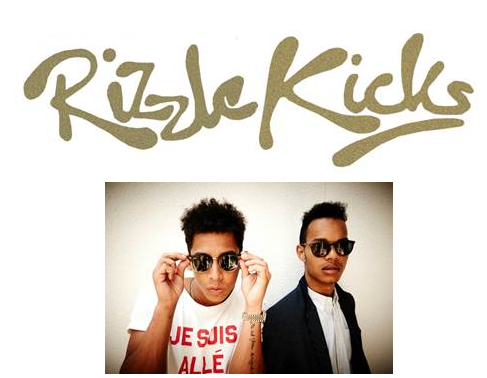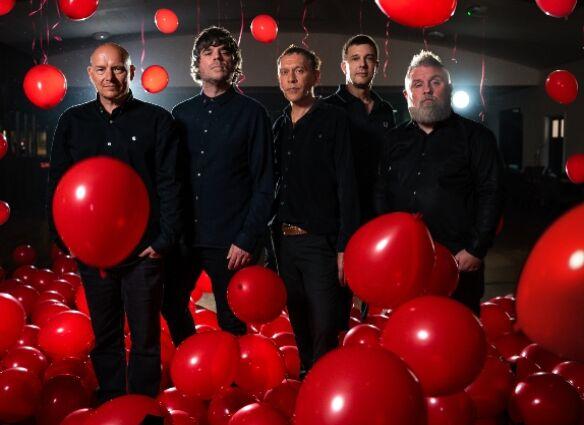Rizzle Kicks whose new critically acclaimed album “Roaring 20s” stormed into the chart at no.3, have announced a massive tour of the UK, making an eagerly anticipated return to the live circuit in February/March 2014. Their brand new single “Skip To The Good Bit” released on November 4th through Island Records. “Skip…” samples “Unbelievable”, the massive UK and US number 1 hit from EMF, one of the biggest and most instantly recognisable hits from the last 20 years.
The tour dates are as follows:
Fri 7th Feb 2014 Lincoln Engine Shed
Sat 8th Feb 2014 Nottingham Rock City
Sun 9th Feb 2014 Sheffield O2 Academy
Wed 12th Feb 2014 Aberdeen Aberdeen Music Hall
Thurs 13th Feb 2014 Edinburgh Picture House
Fri 14th Feb 2014 Glasgow O2 Academy
Sat 15th Feb 2014 Liverpool O2 Academy
Sun 16th Feb 2014 Newcastle O2 Academy
Thurs 20th Feb 2014 Norwich UEA
Fri 21st Feb 2014 Cambridge Corn Exchange
Sat 22nd Feb 2014 Birmingham Academy
Mon 24th Feb 2014 Bournemouth O2 Academy
Tue 25th Feb 2014 Plymouth Pavilions
Thurs 27th Feb 2014 Manchester Apollo
Fri 28th Feb 2014 Leeds O2 Academy
Sat 1st March 2014 London Hammersmith Apollo
Sun 2nd March 2014 Cheltenham Racecourse
Tues 4th March Bristol O2 Academy
Wed 5th March Southend Leas Cliff Pavilion
Thurs 6th March Cardiff University
Fri 7th March Brighton Centre
Tickets on pre-sale today from 6pm, available from here.
Roaring 20s, a record which should see the boys cement their position as one of the most inspiring and refreshing acts to emerge from Britain in recent years, was mostly created in Shepherd's Bush, West London, in the tiny home studio of Stereo Typical producer Ant Whiting (British producer/song-writer/mixer whose career began with ground-breaking work on M.I.A's debut Arular).
The album is a pin-sharp picture of life in your twenties which also reflects the historical Roaring 20s. The album title sprang from Jordan's obsession with the 1920s, a lifelong film buff besotted with Woody Allen's romantic fantasy Midnight In Paris (2011), Stephen Fry's Bright Young Things (2003) and the lives of Earnest Hemingway, Gertrude Stein and F. Scott Fitzgerald. “I was fascinated by the idea that before the 1920s there were Victorians,” he explains. “The change of a woman from wearing corsets to becoming a flapper girl. It was like the metropolitan cities of the world went from black and white to colour. Gay people started arriving. Black people started performing to white people. White people didn't mind black people so much. There was more of a free spirit. And that directly correlates with human age. If you say 1914 to 1918 was World War I and put that into the context of a human life, 14 to 18 is end of GCSE's, you're just becoming legal, hormones have all kicked it, I'd definitely describe it as a war, trying to get a job, all this shit kicks off. Then you get into the roaring 1920s and that whole mentality is very reflective of what it's like in your 20s, the time to have fun. The punch-line being that after the 20s is the 30s, the great depression, and people always whinge about turning 30! So it's a parallel. Music could be seen as being black and white and we're dipping some colour into it. We're the personification of the 1920s.”



